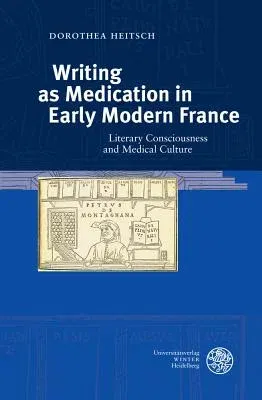Dorothea Heitsch
(Author)Writing as Medication in Early Modern France: Literary Consciousness and Medical CultureHardcover, 21 July 2017

Qty
1
Turbo
Ships in 2 - 3 days
In Stock
Free Delivery
Cash on Delivery
15 Days
Free Returns
Secure Checkout

Part of Series
Regensburger Beitrage Zur Gender-Forschung
Print Length
261 pages
Language
English
Publisher
Universitatsverlag Winter
Date Published
21 Jul 2017
ISBN-10
3825367142
ISBN-13
9783825367145
Description
Product Details
Author:
Book Format:
Hardcover
Country of Origin:
US
Date Published:
21 July 2017
Genre:
French
ISBN-10:
3825367142
ISBN-13:
9783825367145
Language:
English
Location:
Heidelberg
Pages:
261
Publisher: